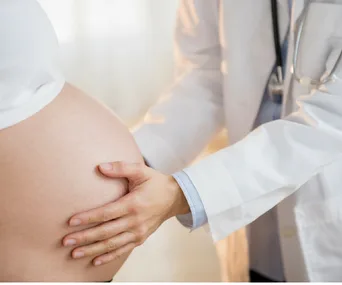Up to one in five women experience miscarriage. It can be heartbreaking with many wondering if it’s their fault but in most cases, a miscarriage has nothing to do with anything you have or have not done. Women experiencing miscarriage need information and support…
Why does miscarriage happen?
Miscarriage is the loss of your baby before 20 weeks of pregnancy. The loss of a baby after 20 weeks is called a stillbirth. Miscarriage happens for many different reasons but the most common cause of miscarriage is abnormal chromosomes, which means that the embryo or fetus can’t develop properly.
Miscarriage can also be caused by:
immune system and blood clotting problems
medical conditions such as thyroid problems or diabetes
severe infections causing high fevers (not common colds)
physical problems with your womb or cervix.
Risk factors
Miscarriage can be more likely to occur if women are:
Over 35 years old
Smoke or drink alcohol
Drink too much caffeine
Have had several previous miscarriages
Continues after video …
The common miscarriage signs
Miscarriage can happen suddenly or over a few days or weeks, and symptoms can vary. The most common symptom is vaginal bleeding, which can be light or heavy. Other symptoms may include:
Cramps in your lower tummy, similar to period pain
Passing fluid from your vagina
Passing of blood clots or pregnancy tissue
Once a miscarriage has begun, medically it cannot be stopped. If you think you’re having a miscarriage, you need to see a doctor.
It’s also important to note, many women can experience light bleeding or spotting during pregnancy and it does not result in pregnancy loss.

The loss of a baby through miscarriage can be devastating. Image: Getty Images.
How to cope with a miscarriage
A miscarriage can bring on a range of emotions but there is no right or wrong way to feel. Some people may feel grief, anger, guilt, denial and in some circumstances, relieved.
Some people may also find it difficult to talk about about a pregnancy loss but there are many support services available to women and their partners …
Pregnancy Loss Australia – Support and Guidance for Miscarriage
SANDS – an independent organisation that provides support for newborn death, still birth and miscarriage.
Bears of Hope – Pregnancy & Infant Loss Support
Future pregnancies
Most women who have had a miscarriage will go on to have a successful pregnancy. If you have had one miscarriage, the chance of you miscarrying again stays at 1 in 5 pregnancies. If you have had recurrent miscarriages (3 or more in a row), your doctor may suggest testing to try and find a specific cause.


